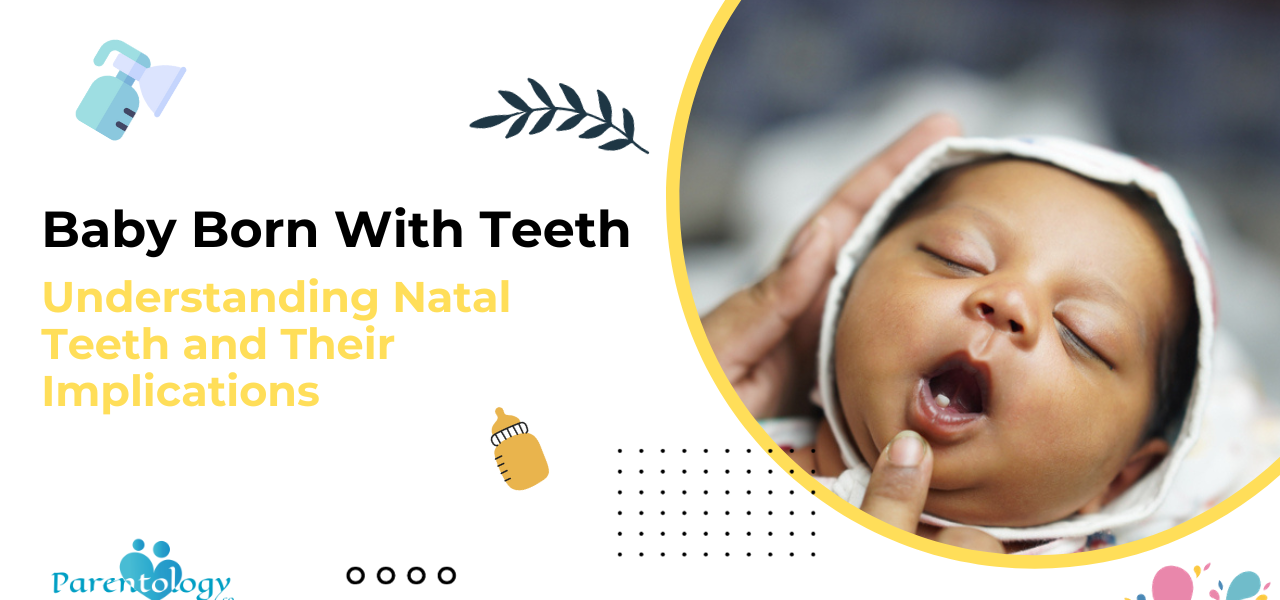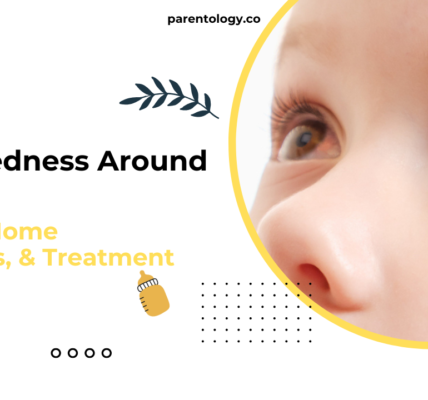Baby Born With Teeth: Understanding Natal Teeth and Their Implications
Welcoming a newborn into the world is a joyous occasion, but what happens when a baby arrives with a surprising anomaly? This article explores the intriguing phenomenon of Baby Born With Teeth, known as natal teeth. Let’s unravel the mysteries surrounding this unique occurrence.
What Are Natal Teeth?
Natal teeth refer to teeth that are present in a baby’s mouth at the time of birth or emerge within the first month. These teeth might appear fully developed or have rudimentary forms, often lacking proper root structures. While rare, the presence of natal teeth raises questions and concerns among parents and healthcare providers.


Frequency and Occurrence
Natal teeth occur in approximately 1 in every 2,000 to 3,000 births. Although they are uncommon, this phenomenon varies across different populations and ethnic groups. The precise cause of natal teeth remains unclear, but various factors may contribute to their occurrence.
Types of Natal Teeth
There are two primary types of natal teeth: neonatal teeth and fetal teeth. Neonatal teeth emerge within the first 30 days after birth, while fetal teeth develop during the prenatal stage and are present at birth. Both types can be single or multiple and may occur in various locations within the mouth.
Associated Conditions and Concerns
While natal teeth might appear fascinating, their presence can sometimes be associated with underlying medical conditions or syndromes. In certain cases, natal teeth can signal genetic disorders or syndromes like Ellis-van Creveld syndrome or pachyonychia congenita.
Management and Treatment
The approach to managing natal teeth depends on individual circumstances. In instances where the teeth pose risks, such as difficulty breastfeeding, potential injury to the baby’s tongue or mother’s nipples, or the risk of aspiration, healthcare professionals might recommend their removal. However, in cases where the teeth are stable and causing no issues, a wait-and-watch approach might be adopted.
Parental Concerns and Support
The discovery of natal teeth can be unexpected and concerning for parents. Seeking guidance from pediatric dentists or healthcare providers is crucial for understanding the implications and ensuring appropriate care for the baby’s oral health.
Potential Implications of Natal Teeth
The presence of natal teeth can have implications beyond immediate concerns, such as breastfeeding difficulties or oral injuries. These teeth might affect the baby’s tongue mobility, causing discomfort while nursing, and could potentially impact speech development as the child grows.
Cultural Beliefs and Superstitions
In various cultures, the birth of a baby with teeth has been associated with folklore and superstitions. Some cultures view natal teeth as a sign of good luck or a predictor of the child’s future, while others may hold beliefs associating it with negative omens or spiritual significance.
Consulting Healthcare Professionals
Upon discovering natal teeth, seeking guidance from pediatricians or pediatric dentists is crucial. Healthcare professionals can evaluate the baby’s oral health, assess potential underlying conditions, and provide recommendations for proper oral care and management.
Challenges in Breastfeeding
One common concern with natal teeth is the potential challenge it poses to breastfeeding. The presence of teeth may cause discomfort for both the baby and the mother during nursing. Consulting a lactation consultant or healthcare provider can help address these challenges.


Early Dental Care and Oral Hygiene
For babies with natal teeth, maintaining proper oral hygiene is essential from an early age. Gently wiping the teeth and gums with a soft, damp cloth after feeding can help prevent bacteria buildup. As the child grows, regular dental check-ups become crucial for monitoring oral health.
Psychosocial Impact on Parents
The discovery of natal teeth may evoke a range of emotions in parents, from surprise and confusion to anxiety about the baby’s health. Providing emotional support and seeking information from credible sources can alleviate concerns and guide parents in providing the best care for their child.
The Role of Genetics on Baby Born With Teeth
While natal teeth are often considered a rare occurrence, genetic factors might contribute to their development. A family history of natal teeth or other dental anomalies might increase the likelihood of their occurrence in subsequent generations.
Community and Support Groups
Engaging with online communities or support groups for parents of babies with natal teeth can provide valuable insights, shared experiences, and emotional support. Connecting with others who have gone through similar experiences can be reassuring for parents navigating this unique situation.
Coping Strategies for Parents Whose Baby Born With Teeth
Discovering natal teeth in a newborn can be an unexpected and bewildering experience for parents. Engaging in open communication with healthcare professionals, seeking support from family or parenting groups, and educating oneself about natal teeth can assist in managing concerns and uncertainties.
Dental Examinations and Follow-ups
Regular dental check-ups and follow-ups are crucial for babies born with natal teeth. Pediatric dentists or dental specialists can monitor the growth and development of the teeth, identify any potential issues, and provide guidance on appropriate oral care routines.
Rare Occurrence and Scientific Interest
While considered rare, the occurrence of natal teeth has intrigued scientists and researchers. Studies aim to understand the genetic, environmental, and developmental factors contributing to this phenomenon, paving the way for advancements in prenatal and pediatric healthcare.
Historical References and Myths
Natal teeth have been noted in historical records and folklore across different cultures. References to infants born with teeth can be found in ancient texts and legends, often intertwined with cultural beliefs, superstitions, or perceived as a sign of special destiny.
Impact on Teething Milestones
The presence of natal teeth might affect the sequence and timing of subsequent primary teeth eruption. Observing and recording the eruption of primary teeth following natal teeth can offer insights into the child’s dental development.
Special Considerations for Oral Health
Parents of infants with natal teeth must be vigilant in monitoring oral health. Avoiding hard or sharp objects that may cause injury, practicing gentle brushing techniques, and addressing any concerns promptly are essential for maintaining oral hygiene.


Educating Healthcare Providers
Healthcare providers may have varying levels of familiarity with natal teeth. Providing information and educating medical professionals about this rare occurrence can contribute to improved understanding and better care for affected infants.
Research and Development in Dentistry
Ongoing advancements in dental technology and research aim to address challenges associated with natal teeth. Emerging treatments and interventions strive to provide better outcomes and care for infants born with natal teeth.
Supportive Parenting Strategies
Supportive parenting involves understanding the unique needs of a child with natal teeth. Creating a positive environment, fostering good oral hygiene habits, and promoting a healthy relationship with dental care are essential for long-term oral health.
Cultural Perspectives on Natal Teeth
In various cultures, the birth of a baby with teeth carries cultural significance. Some cultures perceive natal teeth as symbols of strength, luck, or spirituality, while others consider them ominous or associated with supernatural beliefs. Understanding diverse cultural perspectives fosters respect and appreciation for these beliefs.
Historical Accounts and Medical Documentation
Natal teeth have been documented throughout history, dating back to ancient civilizations. Historical texts and medical records provide valuable insights into the occurrence of natal teeth across different eras, shedding light on how they were perceived and managed in earlier times.
Associations with Genetic Conditions
While most cases of natal teeth are isolated occurrences, they can occasionally be linked to genetic conditions or syndromes. Conditions such as ectodermal dysplasia or Pierre Robin sequence might manifest with natal teeth as one of their clinical features.
Potential Challenges and Solutions
For parents of infants with natal teeth, challenges may arise concerning feeding difficulties, concerns about breastfeeding, or possible tongue injuries. Consulting lactation experts, pediatric dentists, or oral health specialists can provide tailored guidance and solutions.
Psychological Impact on Parents
The revelation of natal teeth in a newborn can evoke a range of emotions for parents, including surprise, confusion, and worry. Offering emotional support, access to credible information, and platforms for discussing concerns can alleviate parental anxieties.
Continued Dental Care
As the child grows, continued dental care and monitoring are essential. Regular dental check-ups, preventive care, and guidance on proper brushing techniques and oral hygiene practices contribute to maintaining optimal oral health.
Social Support Networks
Engaging with online forums, support groups, or parent communities can be beneficial for parents navigating the unique circumstances of natal teeth. Sharing experiences, gaining insights, and receiving emotional support from others can ease the journey.
Parental Advocacy and Education
Parents play a crucial role as advocates for their child’s oral health. Educating themselves, advocating for their child’s needs within healthcare settings, and fostering open communication with healthcare providers are vital aspects of parental involvement.
Research Advancements and Collaboration
Continued research collaboration among dental professionals, geneticists, and pediatric specialists is vital in understanding the complexities of natal teeth. Advancements in research contribute to improved diagnosis, management, and support for affected children and families.
FAQs on Baby Born With Teeth
1. What are natal teeth, and how common are they?
- Natal teeth are teeth present in a baby’s mouth at birth or that emerge shortly after. They are rare, occurring in approximately 1 in 2,000 to 3,000 births.
2. What causes natal teeth in newborns?
- The exact cause of natal teeth isn’t always clear. Factors such as genetic predisposition, hormonal imbalances, or certain syndromes might contribute to their occurrence.
3. Do natal teeth pose any risks or health concerns for the baby?
- While natal teeth are generally harmless, they might lead to difficulties in breastfeeding, tongue injuries, or potential risks of aspiration in some cases.
4. Can natal teeth indicate an underlying health condition or genetic syndrome?
- In rare instances, natal teeth might be associated with genetic conditions or syndromes such as Ellis-van Creveld syndrome or pachyonychia congenita, requiring further evaluation.
5. How are natal teeth managed or treated?
- Management depends on individual cases. In some situations, if natal teeth pose risks or discomfort, healthcare professionals might recommend their removal. Otherwise, a wait-and-watch approach may be adopted.
6. Do natal teeth affect the child’s teething milestones or future dental development?
- Natal teeth might influence the sequence and timing of subsequent teeth eruption. However, this occurrence’s impact on future dental development varies among individuals.
7. Are there cultural beliefs or superstitions associated with baby born with teeth?
- Yes, different cultures have diverse beliefs about natal teeth, perceiving them as symbols of luck, strength, or associated with spiritual beliefs, varying from culture to culture.
8. What support or resources are available for parents of baby born with teeth?
- Parents can seek guidance from pediatric dentists, lactation consultants, and online support groups tailored to provide information, advice, and emotional support.
9. Is it necessary to seek immediate medical attention upon discovering natal teeth in a newborn?
- While natal teeth typically don’t require urgent attention, consulting healthcare providers is recommended to evaluate any potential risks or concerns.
10. Do natal teeth affect speech development or oral hygiene practices in children?
- In some cases, natal teeth might impact speech development or require careful attention to oral hygiene. Regular dental check-ups and proper oral care routines are essential.
Conclusion
While the sight of a baby born with teeth may be surprising, it’s essential to approach this occurrence with knowledge and understanding. Natal teeth, though rare, may require attention and professional guidance. Seeking advice from healthcare providers is vital for addressing concerns and ensuring the well-being of the newborn.
Explore Parentology.co for expert insights and guidance on pediatric dentistry and newborn care, empowering parents with the information needed to navigate such unique occurrences with confidence and care.
Infographics





